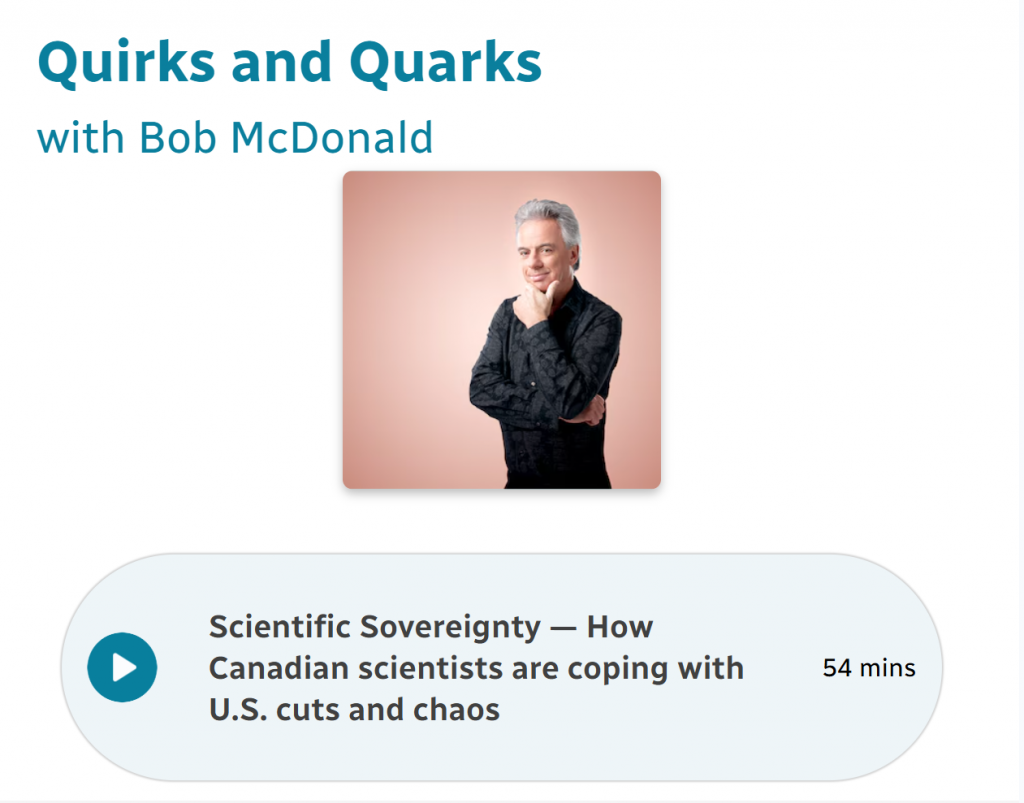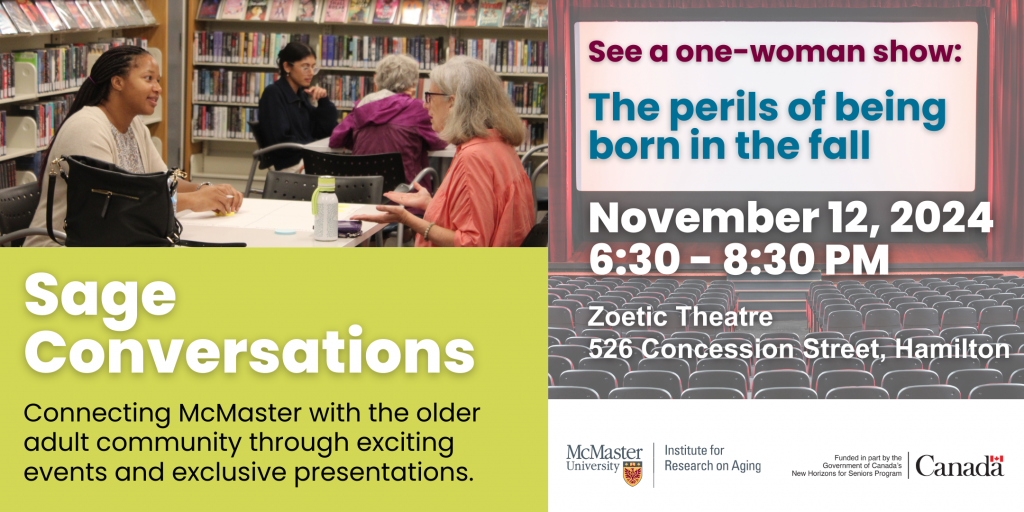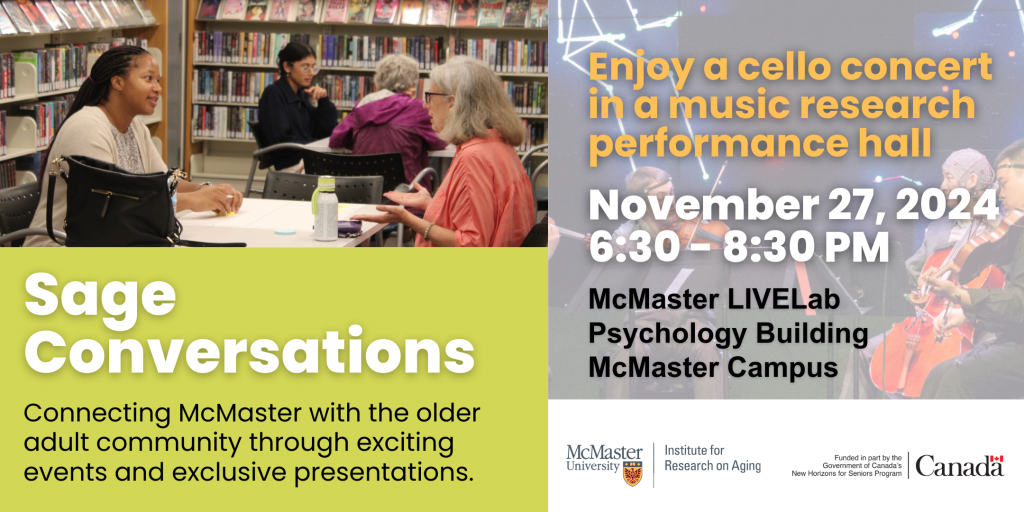Tag Archives: infectious disease
Dr. Bowdish discusses measles elimination on TVO’s ‘The Rundown’
Dr. Bowdish is a panelist at the National Vaccine Summit on Adult Vaccination.
| Over the past 50 years, immunizations have saved more lives in Canada than any other health intervention. With the help of a doctor, an immunologist, a pharmacist and a patient advocate, Zoomer Radio’s Liz West leads this discussion about vaccines – what’s available, where and why we need them. |
| National Vaccine Summit |
| ‣ Recommended Vaccines & How To Get Them ‣ Navigating Provincial Health Systems ‣ The Role Your Pharmacist Can Play ‣ Emerging Science ‣ Fighting Disinformation & Vaccine Fatigue |
Publication: “Rationalizing recommendations for influenza and COVID-19 vaccines”
Supplementary Tables and references
Bluesky Explainer here.
I’m excited to share our review “Rationalizing recommendations for influenza and COVID-19 vaccines”, which we feel makes a strong case for universal influenza and COVID-19 vaccination policies. With almost 500 references & 8 supplementary tables it’s a beast so let me break it down for you….1/n
https://www.sciencedirect.com/science/article/pii/S0264410X25010722#ec0005
We started this >a year ago after conversations with immunologists, policy-makers, and the general public. We felt there were misunderstandings about how well COVID-19 vaccines work. We argue that they work as well or better than influenza vaccines so vaccination policies should be similar. 2/n
Like influenza, everyone but newborns has been exposed to COVID-19 through either vaccination or infection so we only reviewed studies in the post-Omicron/post-vaccine era. There is no doubt that the burden of disease has changed in the Omicron/vaccine era, but does that mean COVID is over? 3/n
Comparable data is hard to find, but when we looked at 2022/23 & 2023/24 data we see that deaths are still higher for COVID than influenza BUT looking at % hides the fact that COVID-19 is more contagious and in 23/24 there were almost 3x as many COVID hospitalizations than influenza. 4/n
There’s a common belief that COVID-19 vaccines don’t provide very good protection against symptomatic infection -is this true? These data are very, very hard to compile because the pace of variant replacement and vaccine changes has been dizzying 5/n
Before we get to the data – I just want to give a huge shoutout to @belongia.bsky.social for leading so many high quality studies on influenza effectiveness – look how easy to compare year-to-year. 6/n
Now look at how complicated it is to compare COVID-19 vaccine effectiveness. In influenza studies it is often possible to assess which strain a person was infected with so you can assess vaccine effectiveness by strain. COVID-19 vaccines are almost never matched with the circulating variants.. 7/n
…but despite that disadvantage, levels of protection from symptomatic infection and severe disease are similar between COVID & influenza vaccines. Note that protection against symptomatic infection is VERY hard to estimate because people who don’t get sick don’t get tested. 8/n
There has been some frustration that COVID-19 vaccines don’t last longer but neither does protection from either infection or vaccination for other viruses. When we compare protection < 3 months and > 3 months, COVID-19 vaccines look pretty good, esp considering rapid variant change 9/n
We also make a case to increase to increase the range of vulnerable populations. Canada has been a leader in including congregate living and equity-deserving groups in priority populations (#elbowsup !) but people living with lung and heart issues should be included 10/n.
Vaccine programs are decided by more than efficacy and efficacy – here’s a summary of what the National Advisory Council on Immunization (Canada) includes. Our review doesn’t address the programmatic, cost, and social considerations, which are also important. 11/n
There are still a lot of unknowns, but we feel strongly that universal & free COVID-19 and influenza vaccines would be a good investment in health, health systems, and attendance at work and school. Thank you to the brilliantly detail oriented Dr.@jabreznik.bsky.social and infl Dr Matt Miller Fin!
Dr. Bowdish’s “The Perils of Being Born in the Fall” is playing at the Toronto Fringe Festival, July 2-12th
Born in September? This professor has got bad news for you. Spend an hour of edu-tainment touring through the wackiness of early 19th century psychiatry, stealth mid-century reproductive rights activism, the climate/pregnancy connection, and learn why cold & flu season has an outsize impact on mental health. Didn’t think science could be funny? Come check out the only show in this year’s Fringe put on by a PhD scientist – you might laugh, but you’ll definitely learn. Tickets are “Pay What You Can” and available for as little as $4! Suitable for ages 13+ (PG). Content warning: brief mention of suicidality, mentions of mental health, abortion and reproductive sex.
Show times are:
2nd July 5:00pm
4th July 8:15pm
5th July 1:00pm
7th July 4:45pm
8th July 2:30pm
10th July 4:15pm
12th July 10:15pm
Helen Gardiner Phelan Playhouse
79 St George St, Toronto, ON M5S 3L8
For details and tickets: https://fringetoronto.com/fringe/show/perils-being-born-fall
CBC’s Quirks and Quarks ‘Scientific Sovereignty — How Canadian scientists are coping with U.S. cuts and chaos’ featuring Dr. Bowdish and MD/PhD candidate Kevin Zhao

Politically-driven chaos is disrupting U.S. scientific institutions and creating challenges for science in Canada. Science is a global endeavour and collaborations with the U.S. are routine. In this special episode of Quirks & Quarks, we explore what Canadian scientists are doing to preserve their work to assert scientific sovereignty in the face of this unprecedented destabilization.
Canadian climate scientists brace for cuts to climate science infrastructure and data
U.S. President Donald Trump’s attacks on climate science are putting our Earth observing systems, in the oceans and in orbit, at risk. Canadian scientists who rely on U.S. led climate data infrastructure worry about losing long-term data that would affect our ability to understand our changing climate. With:
Kate Moran, the president and CEO of Ocean Networks Canada and Emeritus Professor of Oceanography at the University of Victoria
Debra Wunch, Physicist at the University of Toronto
Chris Fletcher, Department of Geography and Environmental Management at the University of Waterloo
U.S. cuts to Great Lakes science and monitoring threaten our shared freshwater resource
U.S. budget and staffing cuts are jeopardizing the long-standing collaboration with our southern neighbour to maintain the health of the Great Lakes, our shared resource and the largest freshwater system in the world.
With:
Jérôme Marty, executive director of the International Association for Great Lakes Research and part-time professor at the University of Ottawa
Greg McClinchey, policy and legislative director with the Great Lakes Fishery Commission
Michael Wilkie, Biologist at Wilfred Laurier University
Brittney Borowiec, research associate in the Wilkie Lab at Wilfred Laurier University
Aaron Fisk, Ecologist and Canada Research Chair at the University of Windsor
Unexpected ways U.S. culture war policies are affecting Canadian scientists
One of the first things President Trump did after taking office was to sign an executive order eliminating all DEI policies in the federal government. This is having far-reaching consequences for Canadian scientists as they navigate the new reality of our frequent research partner’s hostility against so-called “woke science.”
With:
Dr. Sofia Ahmed, Clinician scientist, and academic lead for the Women and Children’s Health Research Institute at the University of Alberta
Angela Kaida, professor of health sciences and Canada Research Chair at Simon Fraser University in Vancouver
Dawn Bowdish, professor of immunology, the executive director of the Firestone Institute for Respiratory Health and Canada Research Chair at McMaster University
Kevin Zhao, MD/PhD student in immunology in the Bowdish Lab at McMaster University (starting at 36:10)
Jérôme Marty, executive director of the International Association for Great Lakes Research
Canada has a ‘responsibility’ to step up and assert scientific sovereignty
A 2023 report on how to strengthen our federal research support system could be our roadmap to more robust scientific sovereignty. The Advisory Panel on the Federal Research Support System made recommendations to the federal government for how we could reform our funding landscape. The intent was to allow us to quickly respond to national research priorities and to make Canada a more enticing research partner in world science.
With:
Frédéric Bouchard, Dean of the Faculty of Arts and Sciences and professor of philosophy of science at the Université de Montreal. Chair of the Advisory Panel on the Federal Research Support System.
The Agenda: Why aren’t more kids vaccinated against measles? With Dr. Bowdish and other experts.
Publication: Minimal Impact of Prior Common Cold Coronavirus Exposure on Immune Responses to Severe Acute Respiratory Syndrome Coronavirus 2 Vaccination or Infection Risk in Older Adults in Congregate Care
Link to publication here.
Link to Bluesky “Skeetorial” here and reproduced below without images:
New paper! “Minimal Impact of Prior Common Cold Coronavirus Exposure on Immune Responses to Severe Acute Respiratory Syndrome Coronavirus 2 Vaccination or Infection Risk in Older Adults in Congregate Care”. For those of you who follow our #COVID work, read on for the story behind the story. 1/n
Remember reports like this one from the beginning of the pandemic? How could some older adults show such resilience to COVID compared to their peers? Some thought that they might have cross reactive immunity due to exposure to the related ‘seasonal’ or ‘common cold’ coronaviruses. 2/n
https://www.cbc.ca/news/canada/ottawa/102-year-old-woman-recovers-from-covid-19-1.5567189
After all, our @mcmasteru.bsky.social colleagues, Dr. Mark Loeb & team had shown years earlier that seasonal/common cold coronaviruses caused a lots of infections in long-term care and others had investigated whether these might protect kids from COVID…. 3/n
https://journals.plos.org/plosone/article?id=10.1371/journal.pone.0108481
….while others have shown that can be very deadly in residents of long-term care (reminding us that words matter and calling them ‘common colds’ minimizes risk – common viruses can still make people very sick, but that is rant for another day). So could pre-existing immunity be protective? 4/n
https://www.thelancet.com/journals/lanhl/article/PIIS2666-7568(23)00018-1/fulltext
Alternatively, maybe older adults got so sick because a life of exposure to these viruses ‘used up’ all the immune cells that could be used to respond to SARS-CoV-2 or COVID vaccines(i.e. ‘immune imprinting’, a phrase I came to hate along with ‘original antigenic sin’ as it was so misused) 5/n
To find out we tested whether antibody levels for the coronaviruses OC43, HL63, and 229E were higher/lower in people whose first COVID infection was an early Omicron variant and found they were not. Therefore it is unlikely these are either protective or problematic 6/n
What about pre-existing anti-coronavirus T cells? We looked at memory CD4+ and CD8+ T cells against the M & N proteins (indicates prev infections) and Spike (vaccine and infections). No evidence that these differed between those who did/did not get an infection (7/n)
What was a correlate of protection? Anti-RBD-IgG & neutralizing antibodies to the ancestral virus (which is all the residents would have been vaccinated to at that point). Unlike others we didn’t find that (serum) IgA was a correlate of protection. 8/n
Pre-existing immunity to common cold coronaviruses didn’t protect against SARS-CoV-2/COVID but might our vaccines and immunity alter immune responses to seasonal coronaviruses? Antibodies to other coronaviruses increased a bit (‘back-boosting’) after COVID infection or vaccination…. 9/n
But I doubt this will have much effect on the prevalence of other coronaviruses who follow a pretty consistent yearly/biennial or big wave/small wave pattern in the Northern hemisphere. We don’t know why but we do know that immunity doesn’t last long so a small boost from COVID infection/vaccination is not likely to make a difference 10/n
https://www.nature.com/articles/s41591-020-1083-1
Caveats: Only measured peoples first infections in the early Omicron era, only older adults living in LTC and retirement homes, vaccines would have been against the ancestral virus – things might be different in other populations/variants/vaccines. 11/n
Huge shout out to Braeden Cowborough for doing all those titres – that’s a lot of plates – and to Dr Jessica Breznik (former @miramcmaster.bsky.social currently @mcmasternexus.bsky.social PDF) for analytic skills. Thanks to the rest of the COVID-in-LTC team @mcmasteriidr.bsky.social
Publication: Canadian Immunity Task Force (CITF) Hema-Net Serosurveillance Meeting
Serosurveillance describes using blood samples to determine what percentage of the population has been exposed to a pathogen or has been vaccinated by measuring the presence or absence of antibodies to the pathogen or vaccination. During the COVID-19 pandemic Dr. Bowdish and team built a network of long-term care homes to measure vaccine responses and infection rates, but this infrastructure could have been used to measure virtually any infection or any antibody response. The Hema-Net community came together February 14-16 to present data and share experiences using serosurveillance and published this report. Unfortunately, no funds were made available to continue Dr. Bowdish’s or others serosurveillance networks.
See the CITF website here.
See the English report here.
See the French Report here.
“The Perils of Being Born in the Fall” will be at the Zoetic Theatre November, 12, 2024
Missed the first run of ‘The Perils of Being Born in the Fall’ at the 2024 Hamilton Fringe Festival? Fear not, there is a repeat performance as part of the McMaster Institute for Research on Aging’s “Sage Conversations” series (and there’s free popcorn, drinks & parking – what’s not to love!)
What’s the show about? Well if you are born in September, Dr. Dawn Bowdish has got bad news for you.
Tour through the wackiness of early 19th century psychiatry, stealth mid-century reproductive rights activism and the climate/pregnancy connection; in the end you’ll learn why cold & flu season has an outsize impact on mental health.
You might laugh, but you’ll definitely learn.
Reserve a spot by clicking here
https://www.eventbrite.ca/e/sage-conversations-see-a-one-woman-show-featuring-dawn-bowdish-tickets-1016877456847

Also see other events in this series….


